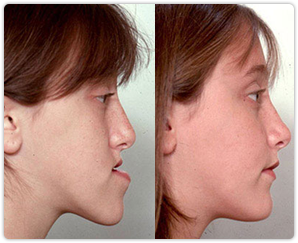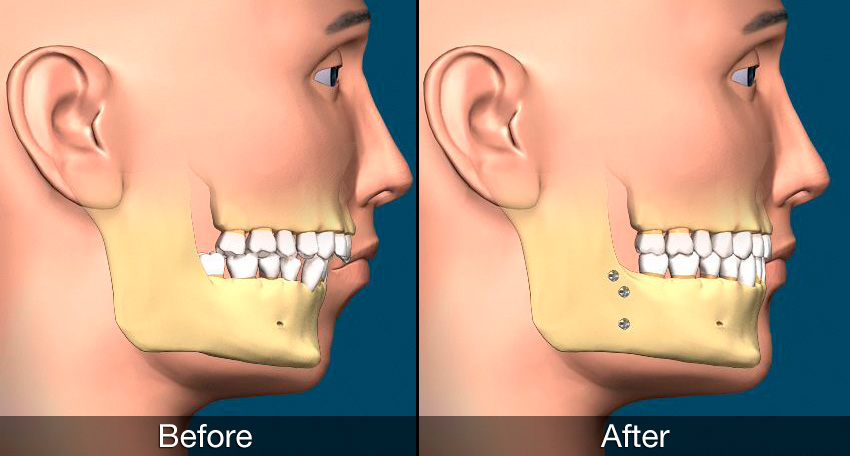
What is Orthognathic Surgery?
Orthognathic surgery, also known as corrective jaw surgery, is a surgical procedure aimed at correcting abnormalities of the jaw and facial skeleton to improve both function and aesthetics. Orthognathic surgery can address various concerns, including misaligned jaws, bite problems, facial asymmetry, and breathing difficulties.
How is Orthognathic Surgery performed?
Orthognathic surgery is typically performed under general anesthesia in a hospital setting. The surgeon will make incisions inside the mouth to access the jawbones. Depending on the specific issues being addressed, the surgeon may reposition the upper jaw (maxilla), lower jaw (mandible), or both. The jawbones are then secured in their new position using small metal plates and screws. Orthognathic surgery may be combined with orthodontic treatment to achieve optimal results.
Who is a candidate for Orthognathic Surgery?
Individuals who have jaw abnormalities or bite problems that cannot be corrected with orthodontic treatment alone may be candidates for orthognathic surgery. Candidates should have realistic expectations and be in good overall health. A consultation with a qualified oral and maxillofacial surgeon is essential to determine eligibility and discuss treatment options.
What are the benefits of Orthognathic Surgery?
Orthognathic surgery can provide both functional and aesthetic benefits for individuals with jaw abnormalities. This procedure can improve bite alignment, chewing function, speech clarity, and facial harmony. Orthognathic surgery can also alleviate symptoms such as jaw pain, headaches, and difficulty breathing.
What is the recovery process like after Orthognathic Surgery?
Recovery time following orthognathic surgery can vary depending on the extent of the procedure and individual healing factors. Patients may experience swelling, bruising, and temporary discomfort in the days and weeks following surgery. It's essential to follow post-operative instructions provided by the surgeon, which may include dietary restrictions, pain management, and oral hygiene measures, to promote proper healing and optimize results.
What are the risks and complications associated with Orthognathic Surgery?
Like any surgical procedure, orthognathic surgery carries certain risks, including infection, bleeding, or adverse reactions to anesthesia. Additionally, there is a possibility of nerve damage, jaw relapse, or dissatisfaction with the aesthetic outcome. However, complications are rare when the procedure is performed by a skilled and experienced surgeon.
Why choose VMG Hospital for Orthognathic Surgery?
VMG Hospital in Hisar, Haryana, is a trusted provider of orthognathic surgery, offering advanced techniques and personalized care to patients seeking to correct jaw abnormalities. Our team of skilled oral and maxillofacial surgeons has extensive experience in performing orthognathic procedures, ensuring safe and satisfactory outcomes. With a commitment to excellence and patient satisfaction, VMG Hospital strives to deliver exceptional results and help patients achieve improved function and aesthetics.

